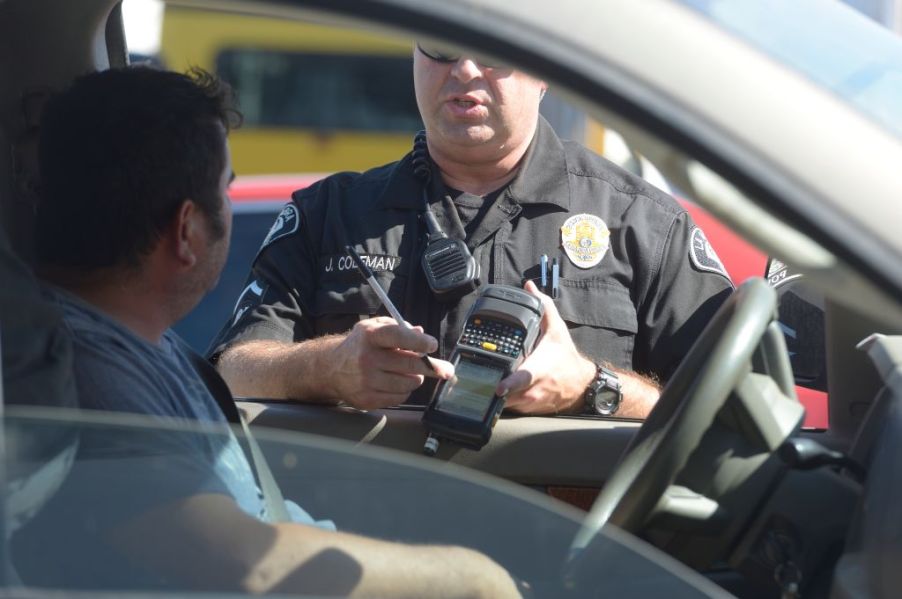
This Stubborn Man Spent Over $35,000 Fighting a Speeding Ticket
Speed limits are in place to keep drivers from putting themselves and other people in danger, so the consequences of disobeying these limits can be costly. If you get a speeding ticket, it’s best to pay it right away. If you don’t, you could face jail time or subsequent fines due to legal fees.
This is the case with one man in Yate, Gloucestershire. He received a speeding ticket three years ago. But, he is so convinced of his innocence, he has continued to appeal the charge, accruing over $35,000 in legal fees — way more than the cost of the original fine.
The initial offense
In November 2016, Richard Keedwell received a speeding ticket in the mail for going 35 miles per hour in a 30 mile-per-hour zone. In the United Kingdom, the cost of breaking the speed limit is $125. Speeding on roads with 20-30 mile-per-hour limits is common. In fact, the Department of Transport estimates that over half of all drivers speed on roads with a posted limit of 30 miles per hour.
According to the ticket, Keedwell’s speed was recorded using a hidden camera on the road. Drivers may be more inclined to speed when there are no police around, but enforcement cameras take pictures of the car’s license plate if it goes over the speed limit. This allows officers to look up the vehicle’s registration and assign tickets accordingly.
Keedwell rejects the speeding ticket
Despite the video evidence of his car breaking the speed limit, Keedwell adamantly stated he was wrongfully accused. According to him, it was not his fault, but rather a technical failure with the speed enforcement camera. Instead of paying the $125, he appealed the charge a year later, but the magistrate overruled it. Keedwell repealed the case three more times, paying over $27,000 in legal fees. He spent an additional $9,000 in travel fees and even more hiring a technician to help prove his case.
Technical inconsistencies?
To help convince the court of his innocence, Keedwell contacted Tim Farrow, who works with telemetry equipment. After careful examination of the photos taken by the camera, Farrow concluded that the camera got an inaccurate reading due to the “double doppler effect.”
For example, say there are two cars traveling together at a relatively close distance. Speed cameras use a radar beam to scan a car. Any car going over 30 miles per hour would trigger the camera to take a picture of the license plate. In the instance of a double doppler effect, the radar would hit the back of the first car, but reflect on the side of the second car. This causes the camera to get two different readings, which could inaccurately double the speed of either car.
A matter of justice
Keedwell attributes his stubbornness to what he perceives as injustice in the traffic court system. He claims that motorists put too much trust in the government and more people should speak out before paying fines if they believe they’ve been falsely accused.
Whether or not this is true, it’s hard to justify spending nearly $40,000 over a simple speeding ticket, not to mention the emotional stress he probably experienced. Keedwell even took a large chunk of money out of his children’s inheritance to pay for legal fees. He still hasn’t admitted defeat.



